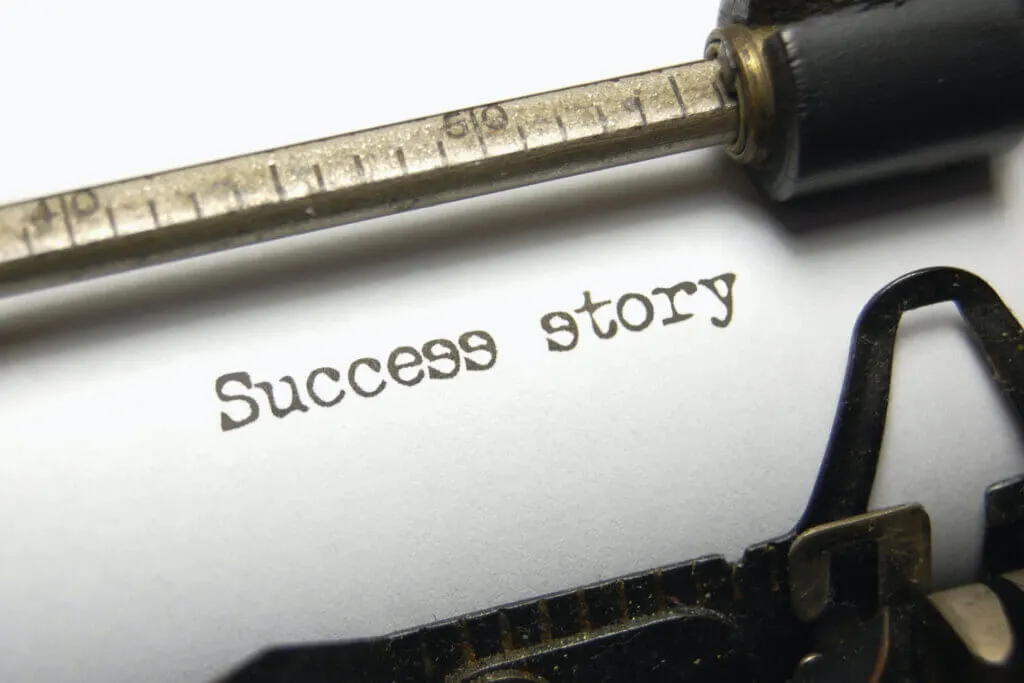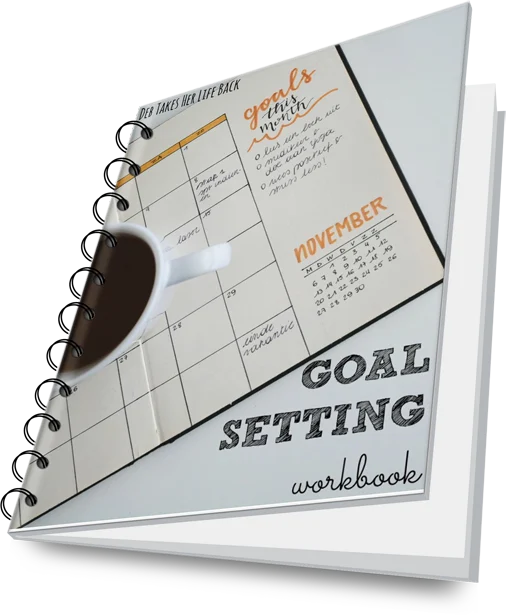Have you ever felt disappointed with the way your life turned out? Maybe you expected to own your own business by now, rather than working yet another entry-level job. Maybe you imagined buying a house by the time you were 30, but now you’re 40 and still renting. You might have pictured yourself happily married with four kids, rather than divorced and sharing custody of one. The fact is that life rarely goes as planned. But that doesn’t have to be a bad thing! The secret is to learn how to properly manage expectations.
See, that’s what lies at the core of disappointment – unmet expectations. You’ve invested significant time imagining a certain outcome to your life, whether that outcome is personally important to you or what society says is important.
Over time, whether or not you’ve met those goals becomes your personal measure of success. And when life doesn’t look like you had imagined and therefore leaves you feeling unsuccessful, disappointment sets it. So how can we effectively manage expectations to avoid experiencing disappointment and depression?
Question whose standard you’re holding yourself to in the first place.
To successfully manage expectations, we first have to consider whose goals we’re working toward. No, maybe you’re not living in an HGTV-worthy home or leading a Fortune 500 company. But do those things actually matter to you?
Maybe they do! But sometimes, we hold ourselves to the standards of our peers or what society or social media tell us life should look like.
For example, I can’t tell you how many times I’ve seen #hustle used in social media posts. These posts convey that successful people fill every gap in their calendar with networking, continuing education, meditation, and more.
But the fact is that I don’t personally like to hustle; having more than one event scheduled on the same day stresses me out. And to be honest, I don’t think that hustling is always very effective. In fact, I wrote an entire article on The Power of Doing Nothing.
So for me to feel like a failure for not living a #hustle life? It wouldn’t even make sense! Take the time to ask yourself if what you’re striving toward is actually important to you.

Accept that standards of success will likely change over time and adapt your mindset accordingly.
When I was in high school, I had a dream of becoming a youth pastor in Mexico. Weirdly specific, I know. But my youth pastor had played an important role in my life, and I yearned to reconnect with my family’s Mexican heritage.
I started college with a double major in youth ministry and Spanish, then realized one semester and internship in that I didn’t want to work with high schoolers after all. So I changed my major to exercise physiology and pushed my Spanish major to a minor. Except one year into my new job as an exercise physiologist, I realized I didn’t want to be in that role either.
Today, I manage a team at a call center where I get to dig into loads of fulfilling projects. I spend my free time writing for my own website and others and have even published a book. And all of that Spanish I learned? It is wildly beneficial living just outside of San Antonio, Texas.
I’m deeply satisfied with where I am. But if I held my success to the standard of being a youth pastor in Mexico, I would feel incredibly disappointed in my life and myself. Sometimes our interests and desires change, and it’s not only okay to roll with those changes, it’s important to adapt to them.
Remember that different doesn’t necessarily mean worse.
Maybe you expected your child to grow up close to family, but your job moved you states away. Or maybe you always imagined Sunday night dinners with your extended family, but they don’t have the time to join most weeks. Maybe you expected to stay in much closer touch with a friend than you actually do.
Again, you’ve likely invested a lot of time imagining those cousin playdates and family dinners and girls nights out. But just because it doesn’t all look like you imagined it would, doesn’t necessarily mean it’s worse.
Sure, spending time with family several times a week would have been awesome! But spending time with close friends and neighbors has its own rewards.
You might have loved to stay in constant contact with that friend. But maybe having a little more time to yourself would work wonders for your mental health in a completely different way!
No situation is purely good or purely bad. Life is never so black and white. By viewing a situation as “different” instead of “worse,” you can approach it with a more open, positive, and accurate mindset.
Remind yourself that you don’t know how meeting those expectations would have turned out.
To successfully manage expectations, you’ll need to accept that you simply can’t predict the future with 100% certainty. Although everyone likes to believe they would have lived happily ever after had they reached their goal, that’s not always the case.
How many movies have explored this plot twist? The main character always dreamed of marrying their high school sweetheart, only to learn their sweetheart became an abusive alcoholic later in life. Or the main character wishes they had nailed their dream job, only to meet the person who did get the job and learn it was actually a nightmare.
How does that Garth Brooks song go? “Some of God’s greatest gifts are unanswered prayers.”
Remember when you find yourself dwelling on regrets that you don’t actually know how it would have gone. We tend to assume it would have been a dream. But it could have just as easily been a nightmare.

Seek out the positives.
It’s possible that taking a different path than you expected actually worked in your favor! If I had never become a stay-at-home mom (which was not my intention when I became one), I likely would have never started writing. And I would have never enjoyed the deeply satisfying creative outlet it’s become for me.
Consider all of the positives in your current situation. Did that ex give you a child that you love more than life itself?
Did that terrible job teach you a skill you were able to use down the road? Or introduce you to a friend you couldn’t live without today? Consider everything you’ve gained on this unexpected path.
Stop mourning the past. Seriously. Stop it now.
You can’t change the past. You can’t go back in time and say no to your first date with your ex…or choose to stay at that job you wish you never left.
So what’s the point in obsessing over your “mistakes”? What are you accomplishing with your regret besides making yourself sad?
Sure, maybe there’s some level of emotional healing that comes from re-exploring your past. I’m a huge proponent of all the benefits of counseling! But once you’ve revisited the past, it’s time to learn from it and move on with your life.
Do you regret a romantic relationship? What did you learn from that relationship that you can carry into the next? What did you learn about yourself?
Do you regret taking a job that didn’t turn out as you had hoped? How can you use what you learned from that experience to find a better job now? What warning signs do you know to look for now?
Re-explore your past and have a good cry if need be. But then glean what you can from the situation and keep moving forward. Because once you’ve gone through that process, the only thing you’ll accomplish by continuing to dwell on your regrets is self-induced depression.
Remember that it’s never too late to change your course or to dream a new dream.
Did you know that Julia Child wrote her first cookbook when she was 50 years old? Or that Rodney Dangerfield caught his first break on “The Ed Sullivan Show” at age 46?
Laura Ingalls Wilder, author of “Little House on the Prairie,” published her first book at age 65. And Anna Mary Robertson Moses, or “Grandma Moses,” began her prolific painting career at age 78.
The internet is full of stories of 20- and 30-year-olds launching start-ups worth millions, or even 12-year-olds raking in the dough as “influencers.” And if you’re not careful, you could easily feel like a failure for not measuring up.
But would you call Rodney Dangerfield or Laura Ingalls Wilder failures? Probably not.
Just because you haven’t accomplished your dream yet, doesn’t mean that you won’t. To manage expectations successfully, you’ll need to reflect on the past and take a proactive approach to the future. Take a fresh evaluation of the direction you want your life to go, then make a new plan to go that way.

If we don’t carefully manage expectations, we can easily feel disappointed in or depressed with lives that are actually pretty fantastic. But by questioning and adapting our standards, correcting thought distortions, and choosing to remain positive and future-focused, we can live happier and more satisfying lives. What will you choose today?

P.S. Need a little help setting goals for a brighter future? Our free workbook will help you assess your priorities, imagine your ideal life, and create a practical path to get there. Nab yours here.
Disclosure: While all opinions are our own, we are a participant in the Amazon Services LLC Associates Program and other affiliate advertising programs, designed to provide a means for us to earn fees by linking to Amazon.com and affiliated sites, at no additional cost to you.



